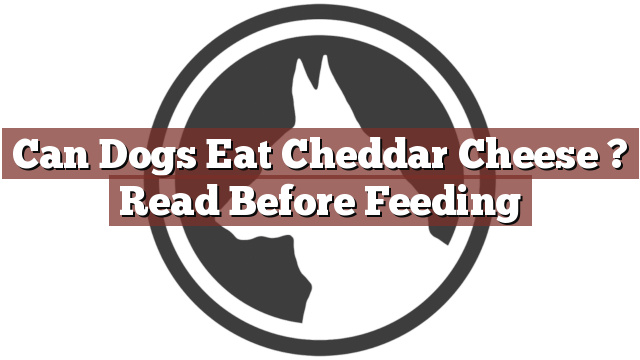Understanding Your Dog’s Dietary Needs
As loving pet owners, it is essential to provide our furry friends with a balanced and nutritious diet. Understanding your dog’s dietary needs is crucial for their overall health and well-being. While dogs are omnivorous by nature, their digestive systems differ from ours, and certain human foods may not be suitable for them. Before introducing any new food into your dog’s diet, it is important to be aware of the potential risks and benefits associated with it.
Can Dogs Eat Cheddar Cheese? Read Before Feeding
Can dogs eat cheddar cheese? This is a common question among pet owners who are unsure about which human foods are safe for their four-legged companions. The answer is yes, dogs can eat cheddar cheese, but in moderation. Cheddar cheese is a good source of protein, calcium, and essential fatty acids, which can be beneficial for your dog’s health. However, it is important to note that some dogs may have lactose intolerance or allergies, making cheese consumption problematic for them.
Pros and Cons of Feeding Cheddar Cheese to Dogs
Feeding cheddar cheese to your dog can have both pros and cons. On the positive side, cheddar cheese can be a tasty and nutritious treat for your furry friend. It is packed with protein, which is essential for the growth and repair of muscles and tissues in dogs. Additionally, cheddar cheese contains calcium, which promotes strong bones and teeth. The essential fatty acids found in cheddar cheese can also contribute to a healthy coat and skin for your dog.
On the other hand, there are some potential drawbacks to consider. Cheddar cheese is high in fat and calories, so it should only be given in moderation to prevent weight gain and obesity in dogs. Furthermore, as mentioned earlier, some dogs may be lactose intolerant or allergic to dairy products. In these cases, feeding cheddar cheese can lead to digestive issues such as diarrhea, vomiting, or stomach discomfort. It is crucial to monitor your dog’s reaction when introducing cheddar cheese into their diet and consult with your veterinarian if any adverse symptoms occur.
Conclusion: Considerations Before Feeding Cheddar Cheese to Your Dog
In conclusion, cheddar cheese can be a suitable addition to your dog’s diet, as long as it is given in moderation and your dog does not have any allergies or lactose intolerance. Before feeding cheddar cheese to your dog, it is important to consult with your veterinarian to ensure it aligns with their specific dietary needs. Additionally, it is crucial to monitor your dog’s reaction to cheese and any other new food, as individual sensitivities may vary. By understanding your dog’s dietary needs and making informed choices, you can provide them with a healthy and balanced diet.
Thank you for taking the time to read through our exploration of [page_title]. As every dog lover knows, our furry friends have unique dietary needs and responses, often varying from one canine to another. This is why it's paramount to approach any changes in their diet with caution and knowledge.
Before introducing any new treats or making alterations to your dog's diet based on our insights, it's crucial to consult with a veterinarian about [page_title]. Their expertise ensures that the choices you make are well-suited to your particular pet's health and well-being.
Even seemingly harmless foods can sometimes lead to allergic reactions or digestive issues, which is why monitoring your dog after introducing any new food item is essential.
The content provided here on [page_title] is crafted with care, thorough research, and a genuine love for dogs. Nevertheless, it serves as a general guideline and should not be considered a substitute for professional veterinary advice.
Always prioritize the expert insights of your veterinarian, and remember that the health and happiness of your furry companion come first.
May your journey with your pet continue to be filled with joy, love, and safe culinary adventures. Happy reading, and even happier snacking for your canine friend!

